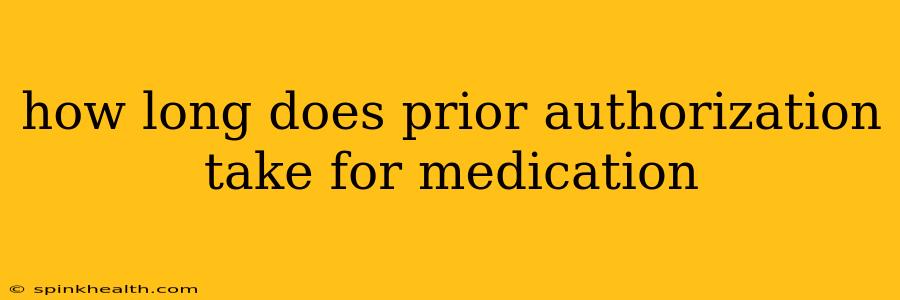The Snail's Pace Race: How Long Does Prior Authorization for Medication Really Take?
Let's be honest, navigating the world of prior authorizations for medication feels like trying to win a marathon while wearing lead boots. It's a process fraught with paperwork, phone calls, and frustrating delays that can leave patients feeling helpless and, quite frankly, desperate for their needed medicine. But how long does this agonizing wait actually last? The truth is, there's no single answer. The time it takes for prior authorization can vary wildly, depending on a number of factors. Think of it less like a precise formula and more like a wild card – sometimes it's quick, other times it's a seemingly endless journey.
This article will delve into the frustrating reality of prior authorization wait times, exploring the factors influencing the process and offering strategies to navigate this bureaucratic maze.
What Factors Influence Prior Authorization Wait Times?
Several factors determine how long you'll wait for prior authorization:
-
Your Insurance Company: Each insurance provider has its own internal processes, timelines, and staffing levels. Some are notoriously faster than others, while some operate with frustrating glacial speed.
-
The Medication: Certain medications are subject to stricter review processes than others. New drugs, high-cost specialty medications, or those with potential for abuse often face longer wait times.
-
Your Doctor's Office Efficiency: A well-organized doctor's office with experience in navigating the prior authorization process can significantly reduce wait times. Conversely, an office unfamiliar with the nuances of your specific insurance can lead to delays.
-
The Completeness of the Request: Incomplete or inaccurate paperwork will inevitably delay the process. Your doctor's office must submit all required information, including medical records and justification for the medication. Missing a single form can result in delays of days, or even weeks.
-
Time of Year: Unexpected spikes in requests around flu season or other periods of high demand can overload insurance company systems, leading to longer wait times.
How Long is "Too Long"?
There's no magic number, but if your prior authorization request has been pending for more than a week or two, it's time to take action. Many insurance companies have specific timelines they should adhere to, and exceeding these could constitute a delay.
What Can I Do to Speed Up the Process?
-
Work with your doctor's office: Keep them informed and engaged throughout the process. Ask for updates and don’t hesitate to call your insurance company if necessary.
-
Be prepared: Ensure your doctor's office has all necessary information ready, including your medical history, diagnosis, and any relevant test results.
-
Choose the right pharmacy: Certain pharmacies have dedicated staff that are experts in navigating prior authorization processes.
What Happens If My Prior Authorization is Denied?
If your prior authorization is denied, you have options. You can appeal the decision, providing additional medical information or arguing the case for the medication’s necessity. Your doctor’s office is key to assisting in this process.
Are there any alternatives to Prior Authorization?
While not always an option, some insurance companies are moving towards alternative methods, such as step therapy (trying a less expensive medication first) or using a different medication from the same drug class.
Navigating prior authorizations is undoubtedly frustrating. Understanding the process and proactively engaging with your healthcare providers and insurance company can help minimize the wait time and alleviate some of the stress involved. Remember, persistence is key—your health is worth the effort.

